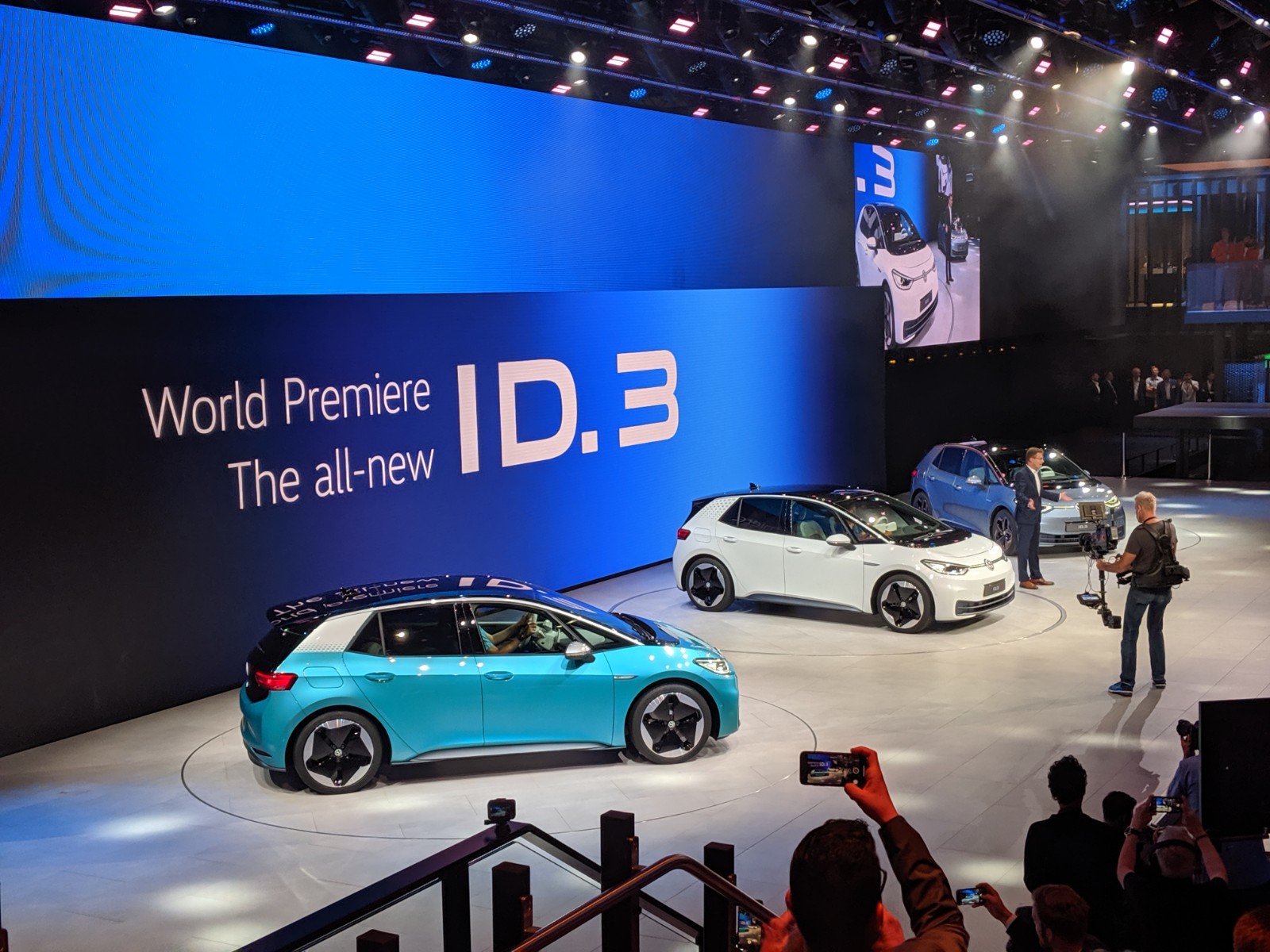Carmakers highlight climate ambitions at auto show in response to protest wave
German carmakers' appearances at this year's Frankfurt Motor Show (IAA) are focusing heavily on a promised future of emission-free mobility: The VW booth showcases many fully electric vehicles, while Mercedes-Benz's stand is dominated by greenery and mobility issues instead of vehicles. Climate protesters, however, plan to highlight an inconvenient fact: Most of the sustainable cars on display are not yet for sale, and the companies are betting heavily on polluting SUVs in order to finance tomorrow's clean alternatives.
In his IAA keynote, Daimler CEO Ola Källenius said that "electrification is the dominant topic" of this year's show. "Sustainability is much more than the propulsion system – it's a package," Källenius noted, with reference to raw material sourcing and environmentally friendly production methods.
Yet Källenius' presentation also highlighted the industry dilemma of aiming for CO2neutrality while relying on conventional sales to achieve it. Shortly after unveiling the fully electric concept car Vision EQS and insisting that "Mercedes-Benz is electric”, Källenius showcased a new SUV model with CO2 emissions of around 200 grammes per kilometre, twice the new EU fleet emission limit.
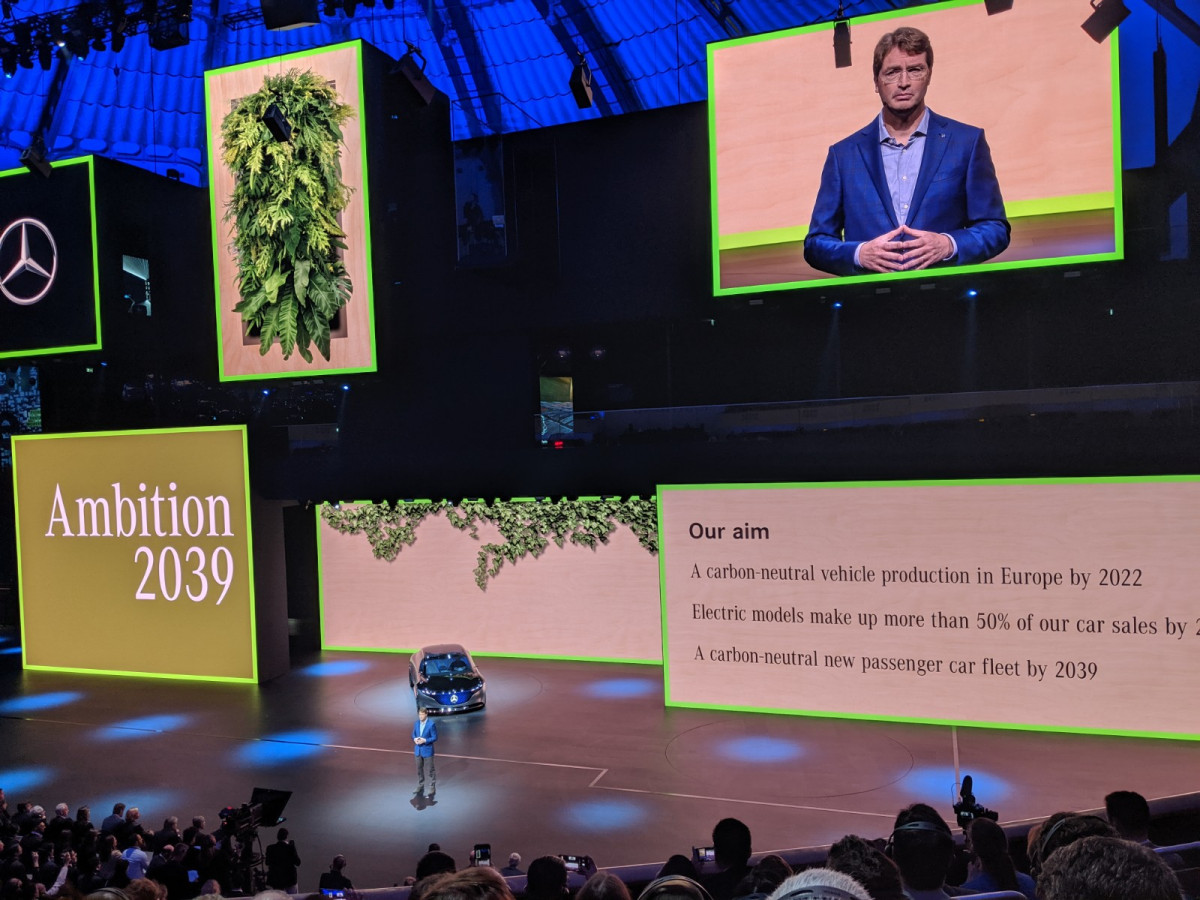
The IAA climate protests will also highlight the government's failure to lower CO2 emissions in transport over the last 30 years, as progress from more efficient engines has been eaten up by rising car numbers and the popularity of heavy SUVs. Partly as a result of its powerful car industry, which provides employment to more than 800,000 people, Germany is lagging behind many other countries in the shift to green mobility. The UK, France, Norway and Sweden have already committed to phasing out conventional cars by the end of the 2030s.
Chancellor Angela Merkel has repeatedly referred to transport as the "problem child" of the country's energy transition. In response to the Fridays for Future movement and a string of heat waves and droughts, Merkel set up a "climate cabinet" to ensure sufficient emission cuts during the next decade in all sectors including transport. The task force will have its decisive meeting on 20 September, the day of the global Fridays for Future climate strike preceding the UN climate summit on 23 September.
New BMW CEO Oliver Zipse began his highly anticipated talk with an expressed commitment to the Paris Climate Agreement, adding that his company's European production was already carbon-neutral and that BMW was on track to sell more than a million electric vehicles by 2021. He also stuck to the company's strategy of a "flexible" approach encompassing various propulsion technologies, however, including conventional combustion engines. Zipse added that BMW was working "intensively" on fuel cell technology for longer distances. "In 2022, we will introduce a fleet of fuel cell vehicles."
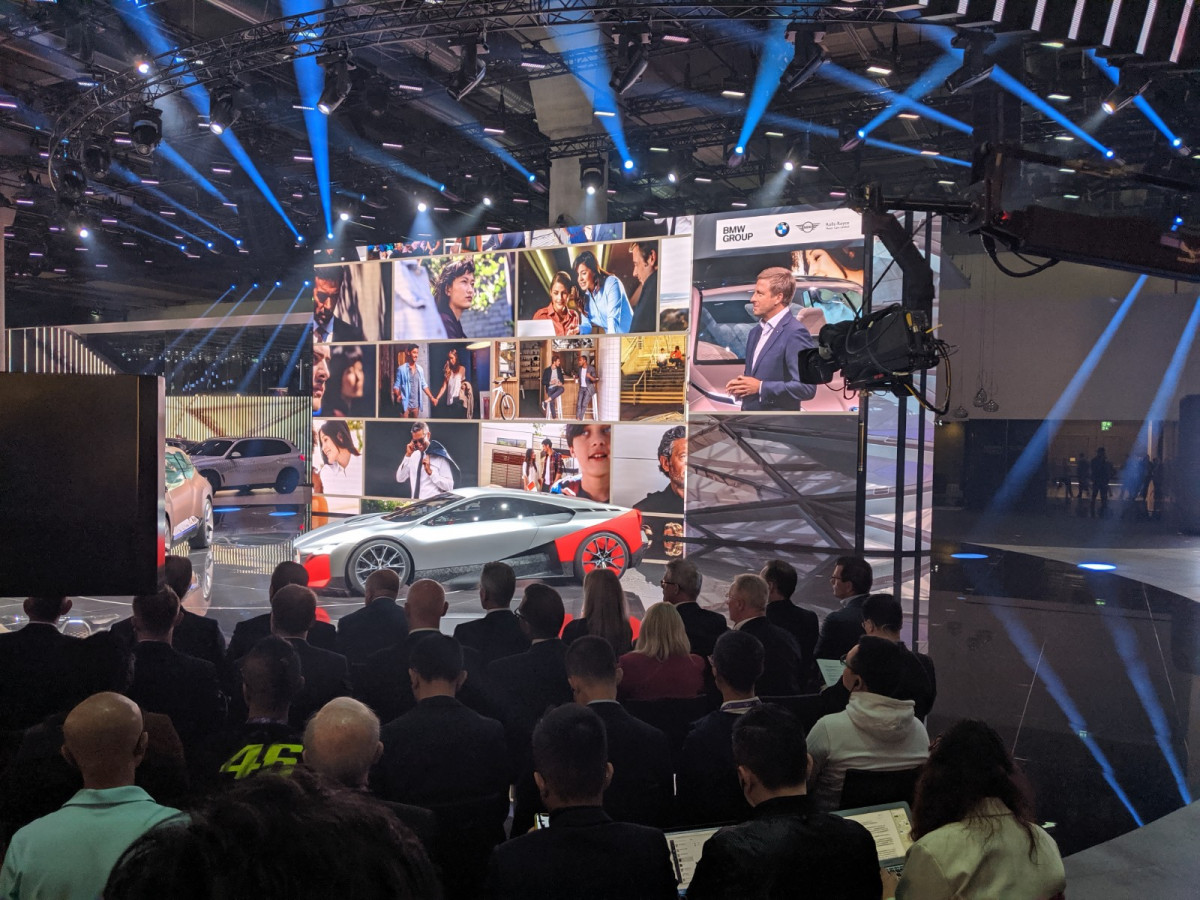
In contrast to BMW and Daimler, Volkswagen focused exclusively on what it described as "largest electric offensive of the automobile industry," without mentioning any conventional cars at all. For the show's press days, VW is showcasing around 20 fully electric vehicles only, but staff said it would add combustion engine models, including SUVs, for the general public opening on Thursday.
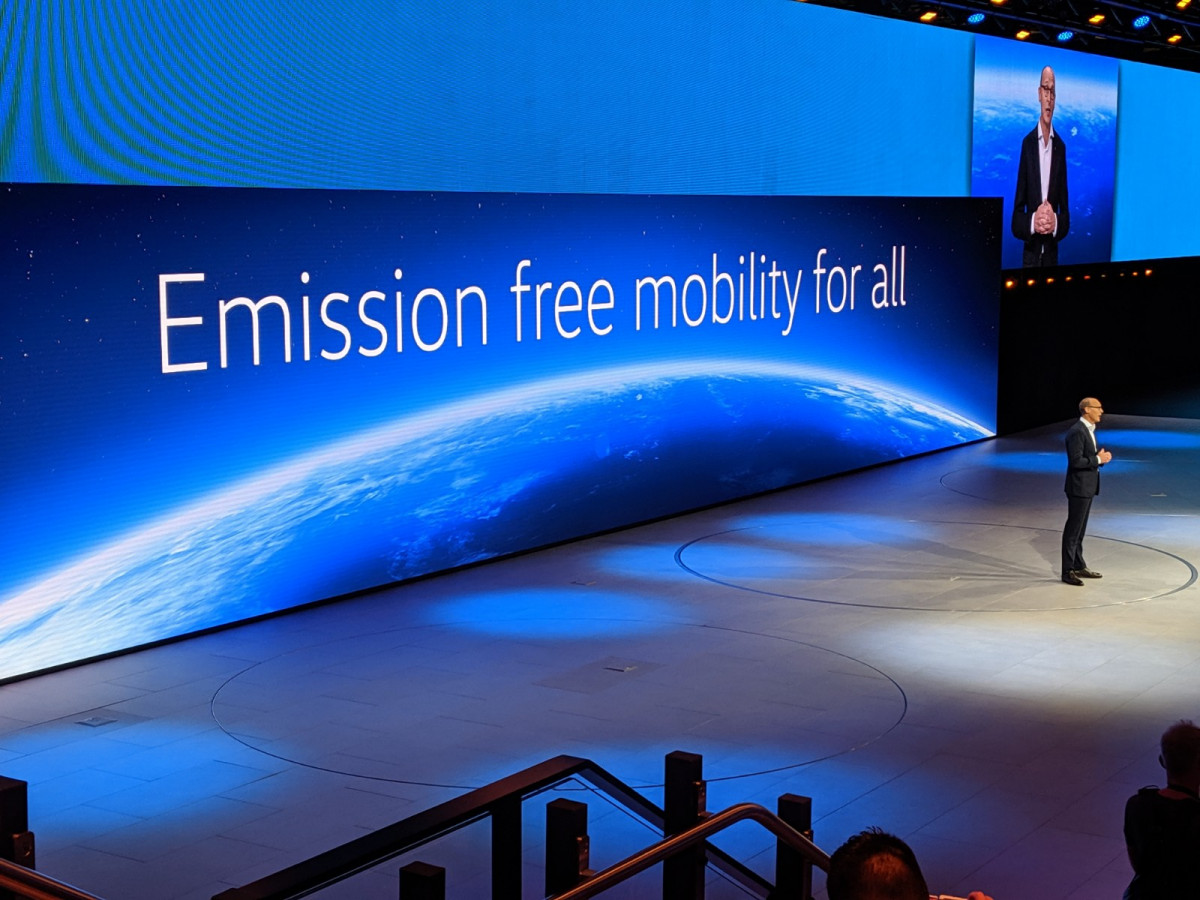
For VW, this year's IAA is particularly important because the world's largest carmaker unveiled the ID.3, its first fully electric model based on a new vehicle platform that forms the basis for its huge electric ambitions. The model has been widely cited by media as one of the show's highlights. VW pledged earlier this year to transform itself from Dieselgate pariah into e-mobility pioneer, and has committed tens of billions of euros to the task.
Like BMW and Daimler, however, VW is also betting heavily on controversial SUVs because these offer the highest margins. VW CEO Herbert Diess defended this strategy in a meeting with radical protest group Sand im Getriebe (Sand in the Gears). The group has links to the British Extinction Rebellion movement, which will try to block entrances to the IAA in an act of civil disobedience scheduled to start on Friday.
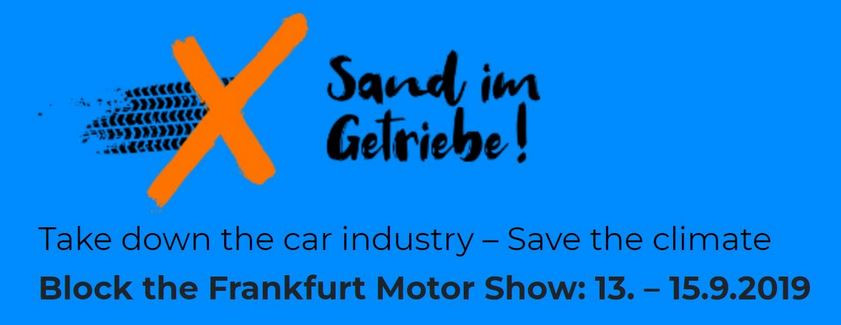
In a discussion hosted by left-leaning daily tageszeitung, Diess said his company built SUVs because customers want to drive them and because "we need their profits so we can invest into the future”. Diess stressed that he agreed with the protesters that the car was "a bad compromise" for urban mobility because it needed too much space, and that other solutions were required. Sand im Getriebe spokesperson Nina Velo countered that VW's green ambitions were "nothing more than a fig leaf”, adding: "Your greenwashing makes me angry."
Both the car companies and auto industry lobby group VDA, which has been a staunch defender of the combustion engine and organises the IAA, have gone out of their way to engage in a dialogue with the protesters this year in a move described as "revolutionary" by German media.
Energised by the impact of the Fridays for Future student movement, climate activists plan to descend on Frankfurt in droves, demanding a fundamental overhaul of current mobility policies and radical change at the carmakers. Supported by environmental NGOs Greenpeace, Friends of the Earth Germany (BUND) and others, protesters are calling for an immediate phaseout of combustion engines, climate-neutral mobility by 2035, lower speed limits and priority for pedestrians, cyclists and public transport during a mass bicycle ride and protest march. They are also demanding "efficient electro mobility instead of big electric SUVs”, a jab at the new purpose-built electric vehicles from German carmakers, the Mercedes EQC, and the Audi e-tron, both weighing 2.5 tons even when they're empty.

